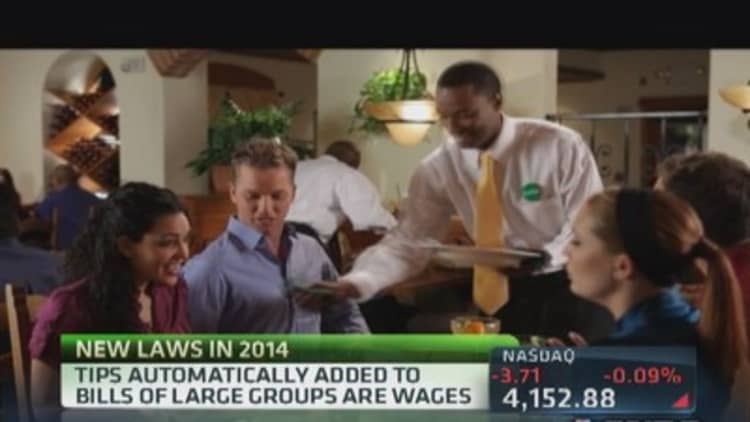In China, customers don't order french fries—they're shu tiao. In Turkey, they're called patates and in Russia, you would ask for kartofel' Fri.
Andy Puzder, the CEO of CKE Restaurants, the parent company of Hardee's and Carl's Jr., should know. His company is expanding rapidly abroad due to higher potential outside the U.S., which is hampered by what he sees as too much government regulation.
"It's difficult to open in the U.S., but we love the U.S. and continue to fight the good fight to open restaurants and create jobs," Puzder said. "It's just that the government is making it hard for us to build those restaurants."
Over the last three years, Hardee's and Carl's Jr. opened more restaurants internationally than in their own backyards—a first, he added. CKE now operates restaurants in 30 foreign countries.
(Read more: McDonald's removes worker site after fast food flap)
On a percentage basis, the growth rate is striking. During this period, the company increased its restaurant count domestically by 2 percent. Meanwhile international locations jumped by 53 percent as CKE filled in "white space" or areas where it currently doesn't have restaurants.
Easier to open in Siberia than California
"Under the current U.S. business climate, regulatory and tax restrictions tend to curb otherwise dynamic entrepreneurial energy," Puzder said. "We'd love to see more growth in domestic markets. Unfortunately, it's easier for our franchisees to open a restaurant in Siberia than in California."
In the U.S., the company's Hardee's division is expanding in New York, New Jersey, Chicago and South Florida. Meanwhile, the Carl's Jr. division is growing in Texas and the Seattle area.
(Read more: Recession's over ... so who forgot to tell diners?)
Puzder named Brazil, Russia, India, China and Europe as the places where he sees the greatest opportunities for growth.
"Other than Antarctica and the North Pole, I can't think of any countries we're not looking at," he added.

Currently, the company has 36 locations in Russia, where it's expanding "aggressively," six in China through a joint venture and two in Brazil. He added that the number in Brazil could balloon to 500.
It's "just hard to talk about the numbers in China," he said. "You could have 1,000 (or) 2,000 there. It's hard to estimate the potential in that country."
CKE is currently in talks to open its first locations in Spain, Germany, Great Britain and Australia.
(Read more: Restaurants' big bet to get you to spend more
It's also "very close to a deal" in India, which Puzder said "would be an interesting country for us because they don't eat burgers," but would go for chicken sandwiches and veggie patties.
Challenges to U.S. expansion
Puzder named ethanol regulation, which has resulted in higher beef costs, a rising minimum wage and higher labor costs due to Obamacare as three obstacles that make doing business in the U.S. more difficult than in the past.
To help lessen the effect of these rising labor costs and to attract a tech-savvy generation, CKE is turning to technology and looking into options for mobile ordering as well as tablet ordering within its restaurants.
"I think it satisfies the needs of younger people. It also reduces your costs," he said. "When they talk about raising the minimum wage or providing health care for employees over 30 hours, you're really encouraging automation."
—By CNBC's Katie Little. Follow her on Twitter @KatieLittle


